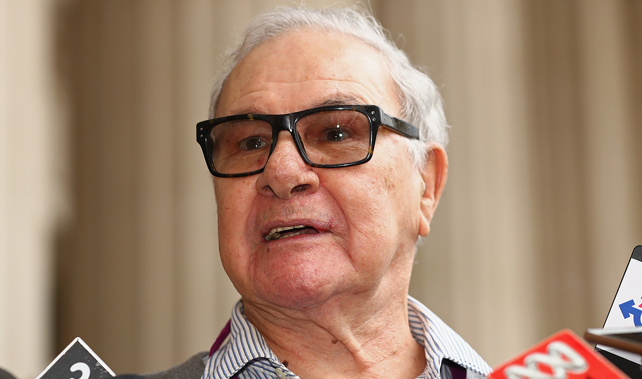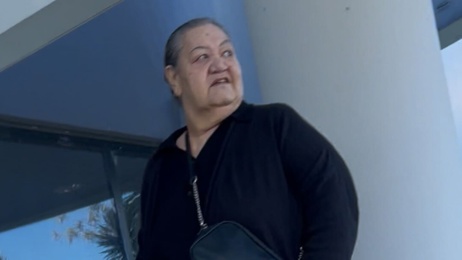
Noel Tovey had a rough upbringing, part of Australia’s stolen generation, taken away from his parents, growing up as a self-described street kid.
MORE: Rainbow flag raised outside Parliament to mark 30 years since Homosexual Law Reform
LISTEN: The legacy of Homosexual Law Reform 30 years on
For the majority of his life he’s also had a police record, because more than half a century ago, Noel was arrested at a party aged seventeen.
Being a gay man at that time was difficult. Noel described it as being a "witch hunt for any man that was gay and they were hounded by the police."
He recounted the night police raided the party. He was taken down to the station, "roughed up a bit" and made to sign a confession to say he had sex with another man at the party.
"It was part lies and part truth...I was told if I signed the confession then I’d be allowed to go home," he said.
But he wasn’t.
"I was very naïve about the law in those days. Instead of being allowed to go home, I was locked up."
"My mother came down to bail me out the next day and she asked if I had done it. I said 'not with him' and so I pleaded not guilty [to the charge of buggery] but was lead to a trial by jury and was in and out of Pentridge jail."
Noel estimates he spent around six months in total in jail but when he got out, it wasn’t a secret.
"Everyone in Melbourne knew because I was vilified by the press – every newspaper."
Noel, now 84-years-old, had a broad career as a stage performer, starring in a range of musicals and winning a range of awards. He also fought for indigenous rights in Australia and Civil Rights in the United States. He protested the Vietnam War, and was involved in the pivotal Stonewall Riots which sparked the modern gay rights movement.
But he wasn’t respected by the theatre establishment.
"I made my professional debut in 1954 in a musical called Paint Your Wagon and six of the boys went to the English choreographer and said they didn’t want to work with me."
"When she [the choreographer] asked why, they said it was because I’d spent time in jail, was a notorious homosexual and I was aboriginal."
In May this year, Victorian state premier Daniel Andrews issued a formal apology to all those convicted – and there was thousands of them - under the historical anti-gay laws.
Last September, a Victorian scheme meant those convicted could apply to have their convictions expunged and Noel was one of the first in line.
However, he said that was nothing compared to receiving a formal apology.
"The apology meant more because that was a recognition of homosexuals…and that made it easier for young people to come out because they can say to their parents, 'well, the government recognizes homosexuality'."
There are calls for New Zealand to follow suit and formally apologise to those convicted prior to homosexual law reform in 1981, however New Zealand's Justice Minister Amy Adams insists it would need to be done on a case-by-case basis as the crime of buggery did not differentiate between consensual and non-consensual acts.
However Anna Brown, a human rights lawyer, believes it's critical to examine each case individually.
Noel Tovey hopes the expungement scheme encourages others to come forward, and believes New Zealand should follow suit.
"I think really there’s a lot of people out there like me who have a new name, a new job, new position in life and I’m hoping that now they come out of the woodwork and apply for expungement but it’s going to take some doing to get them to do that," he said.
He said the scheme will be of more help to younger people who were arrested closer to the law change, "whereas people of my generation…well it’s something we’ve lived with for so long."
He said equal rights have come a long way since 1951 but there’s still work to do.
"It started with the expungement here in Victoria and the apology that followed – I was very involved in that – and that’s really helped a great deal," he said.
"Each step along the way is a small step but it can be translated into a big step if people were to do that."
Take your Radio, Podcasts and Music with you









